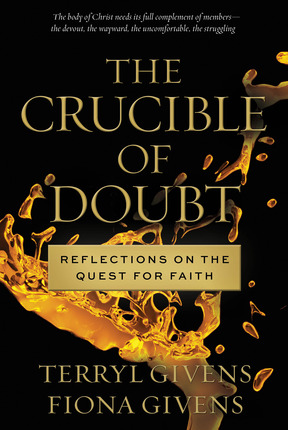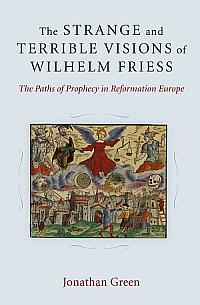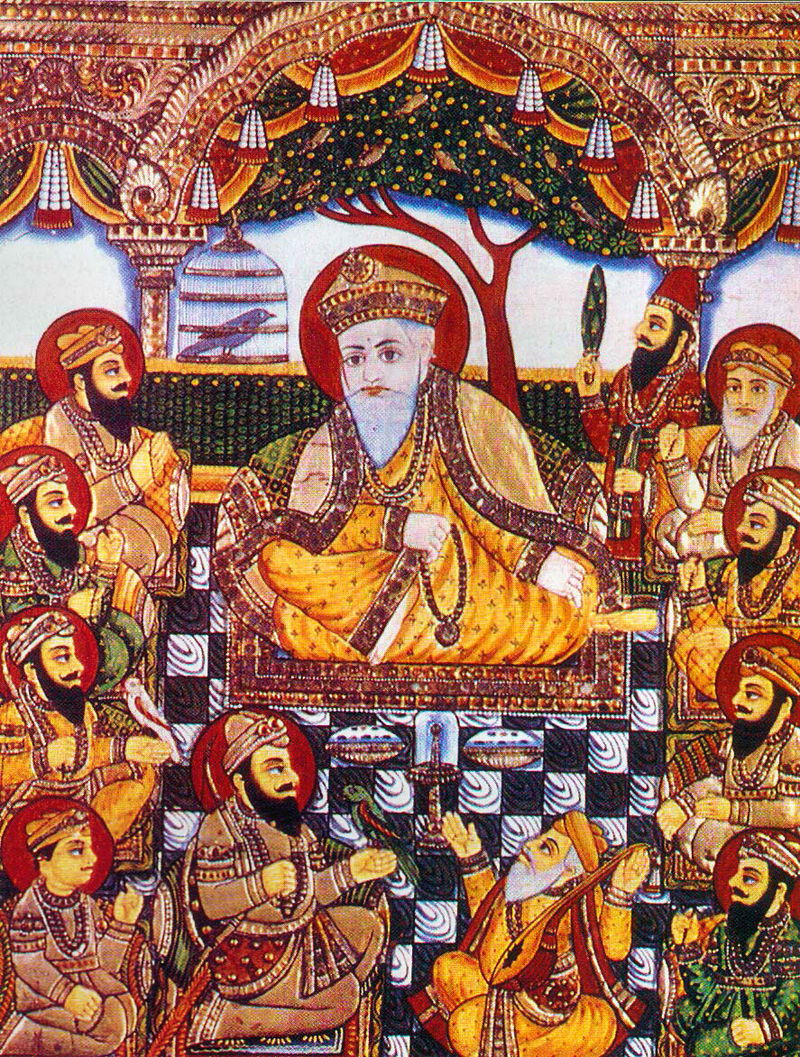-
•
•
16 responses

Early in my book publishing career, I worked for an innovative publisher of high-quality childrens picture books. One day, in conversation with my boss, the publisher, I criticized the Little Golden Books, a long-running line of cheaply produced picture books with very simple (and, I thought then, not very notable) stories. To my surprise, my boss leapt to their defense. Without the Little Golden Books, he explained, millions of kids wouldn’t have been read to as children, and my not have learned to read. In my focus on issues of quality, I had not realized that purpose is more important… Read More
-
•
•
48 responses
I love Primary. It’s my favorite place to serve in the Church, and if I had my way I’d serve there for the rest of my life. This month’s Sharing Time theme is “‘The Family: A Proclamation to the World’ Came from God to Help My Family.” Looking through the October lesson plans in the 2014 outline, week 2 caught my eye: “Marriage between a man and a woman is essential to God’s plan.” The topic — the importance of marriage — is one that matters a lot to me. I thought that the suggested lesson plan could do more… Read More
-
•
•
44 responses
So I stumbled upon a Rod Dreher article at Beliefnet, “The Church’s Lost Generation” (and by “Church” he means generic Christians). It is clear from General Conference themes that senior LDS leaders are now aware (finally) of our youth retention problem and the broader faith versus doubt problem that seems to be on everyone’s mind lately. Dreher makes it clear we are not the only ones worried about the problem. Everyone is losing their youth, it seems. Read More
-
•
•
47 responses

General Conference is the central forum for official instruction in Mormon doctrine. Conference has very wide viewership among church members, and its influence is magnified by the widespread reach of Conference talks in the Ensign. The last General Conference in which Kolob was mentioned — the star where God lives — was in 1969. In 1969, President McKay briefly alluded to the idea of Kolob as an actual belief: Members of The Church of Jesus Christ of Latter-day Saints always have known through revelation of the numberless creations of God. They are taught that somewhere out in that great expanse… Read More
-
•
•
6 responses
Fiona and Terryl Givens’ The Crucible of Doubt is a nearly perfect book. I hope that a million Mormons read it. Crucible manages to do what all great religious writing must: it sacrifices the impulse to prove its religion and, instead, takes up the yoke of living it. Read More
-
•
•
20 responses
Note that I did a separate post on the General Women’s Meeting here and posted notes from the Saturday afternoon session here. Some things I liked from conference: Read More
-
•
•
3 responses
Welcome to the fourth or fifth or sixth session of General Conference, depending on how you count. Text in quotation marks are verbatim quotes but not 100% guaranteed; other text is my summary of their remarks. [My comments inside brackets.] Music by the Choir. President Eyring conducting (he thinks it’s the fifth session), President Monson presiding. Song, prayer. Read More
-
•
•
5 responses
We spent yesterday listening to General Conference while assembling IKEA furniture in the hopes that the spirit of the meeting would help reduce the desire to curse associated with strange pictorial instructions and screw heads that really want to strip. It went as well as could be expected. This morning I read about theology, love and literature (Alan Jacobs), cleaned some, made tea for my sick husband, harvested from the garden to make omelets (squash and onions, parsley and sage, tomatoes, with mushrooms and provolone not from the garden) for a late breakfast. And now I’m ready for conference to… Read More
-
•
•
One response
Welcome to T&S’ coverage of the Priesthood Session of General Conference. We welcome your comments. . Chorus: Rise Up O Men of God President Henry B Eyring is conducting this session. Chorus: Medley of Primary Songs Elder Quentin L. Cook — Choose Wisely “How do you expect me to catch the ball when I am worried about our country’s foreign policy?” We need unequivocal commitment to the commandments and strict adherence to sacred covenants. My concern is not only about the big tipping point decisions, but also the middle ground – the workaday world and seemingly ordinary decisions where we… Read More
-
•
•
13 responses
My conference notes. (Snark in parentheses.) Read More
-
•
•
10 responses
President Eyring conducted the Saturday morning session. Direct quotations are in quotation marks (from my notes). Other text is my summary of what was said. Read More
-
•
•
16 responses
A friend recently said she needs a “new approach” to studying the Book of Mormon. I’m not sure what her old approach was, Read More
-
•
•
Peace like a river. Read More
-
•
•
24 responses

If you are a Bloggernacle regular, probably not you. You most likely have little sympathy for their fluffy books and a whole heap of disdain for their other kitschy products. Read More
-
•
•
81 responses

In her talk “The Evolutionary Roots of Religious Adaptation” for the Mormon Transhumanist Association, Chelsea Strayer hit on one of the fundamental sources of tension between devout and academic perspectives on faith: the distinction between process and purpose. She gave the example of evolution, emphasizing that when she teaches evolution it is fundamentally a discussion of process rather than purpose. Despite this, however, she recounts that: Every time I teach an evolution class… I have one student walk away and say, “Hey, you just told me that God doesn’t exist. You just proved that.” And I’ll have [another] student say,… Read More
-
•
•
49 responses
It is my nature to be cynical and critical and to focus on flaws, so when I tell you that the General Women’s Meeting was nearly perfect, that’s really saying something. Read More
-
•
•
7 responses

The Temple and Observatory Group, which has sponsored other events in Utah, Virginia and New York, is offering a seminar for those in the midst of a faith transition or crisis in the Minnesota area. The event features Terryl and Fiona Givens and Spencer Fluhman. Come listen to the three speak about negotiating LDS history, faith challenges and transitions on Saturday, September 27th from 10:30am – 3:30pm at 6125 Shingle Creek Pkwy, Brooklyn Center, MN 55430 (library). Lunch will be provided. Please sign up on the Facebook page as seating is limited. Note: there are no tickets for this event… Read More
-
•
•
40 responses
At last night’s Stake Leadership Training Meeting, the stake president announced the first two speakers, both bishops. The second was assigned the topic “the unwritten order of things.” Hard to think of a topic more likely to spin out of control — I braced for the worst, and prepared myself for the upcoming train wreck by Googling up a copy of Elder Packer’s actual remarks at the 1996 BYU devotional and (#3 on the Google search) Julie’s 2009 post “The Problem with the Unwritten Order of Things” and the 103 spirited comments to that post. Read More
-
•
•
8 responses
Having heard nice things about the odd little book by Pierre Bayard How to Talk About Books You Haven’t Read (ht: someone out there), I finally found it. And read it. Summary: You read a very, very small slice of all published books. You forget most of what you read, so you retain only a small part of the few books you actually read. Worse yet, you bend and twist what you do remember to fit your own personal matrix of ideas and experiences. So what is in your head after reading a book, even more so for a book… Read More
-
•
•
80 responses

So a dear friend of mine[1] just got called to a new bishopric and wants to know the known knowns, the known unknowns, and, of course, the unknown unknowns[2]. Read More
-
•
•
27 responses

For the last couple of weeks, I’ve been setting a timer every time I say my evening prayers. This might sound like an absolutely terrible idea and, in some ways I guess it is. So before I tell you how that has worked out for me, let me explain why I would even consider such an idea in the first place. It starts with the idea of the curse of success. I first encountered this concept in Milton and Rose Friedman’s Free to Choose. They wrote that when a policy or technology becomes successful, it can be known more for… Read More
-
•
•
9 responses
My son came stomping into the house from the garden a month ago, demanding I punish his sister, Read More
-
•
•
79 responses
Today Elder Ballard spoke at the Europe Area Sisters’ Meeting. (Yes, the same meeting with the poster flap.) You can see the video here. Read More
-
•
•
22 responses

So I wrote another book. At first I thought that I was writing a short article to explain why two different Reformation-era prophecies share the same title, but the project kept expanding. Along the way, I changed the way I think about biblical textual criticism and the Documentary Hypothesis. Read More
-
•
•
86 responses
It’s not surprising that the First Vision has become one of the faith issues that gets kicked around the Internet these days. Visions are personal experiences of one particular person, so little effort or justification is needed for a third party to doubt or disbelieve another’s account of a vision. Most Mormons find it easy enough ignore or reject visions recounted in other Christian traditions without much reflection. As Steven C. Harper notes, “It is vital to recognize that only Joseph Smith knows whether he experienced a vision in 1820. He was the only witness to what happened and therefore… Read More
-
•
•
13 responses

Yes, we do, a lot of temples, more than ever in history. We are, as the leaders never stop telling us, a temple building people, and if anything distinguishes us from our fellow-Christians it is our temples. For us the temple is a crucial religious and ritual focus, the apex of our notion of holiness; it is also somehow a link with a distant past, with the deep salvation history of mankind, through Israel. Indeed, one of the themes running through the Old Testament is exactly that of the temple. But what is temple, and what continuity is there among… Read More
-
•
•
9 responses

A couple of weeks ago I listened to the audiobook of Sikhism: A Very Short Introduction. As that was the first thing I’ve read on the topic (other than a multitude of Wikipedia entries) I by no means consider myself some kind of expert, but I was struck by several parallels and differences between Sikhism and Mormonism. The little I have learned has already helped me to see my own faith in new ways. In terms of similarities, Mormonism and Sikhism are both relatively new religions that arguably constitute a culture or a people (in addition to a religion) and… Read More
-
•
•
63 responses
Terryl and Fiona Givens, The Crucible of Doubt, Deseret Book, 145 pages. Read More
-
•
•
53 responses
Imagine that everything in the church is precisely the way that it is now with two exceptions: Read More
-
•
•
5 responses
Eric D. Huntsman, The Miracles of Jesus, Deseret Book, 164 pages. Read More
